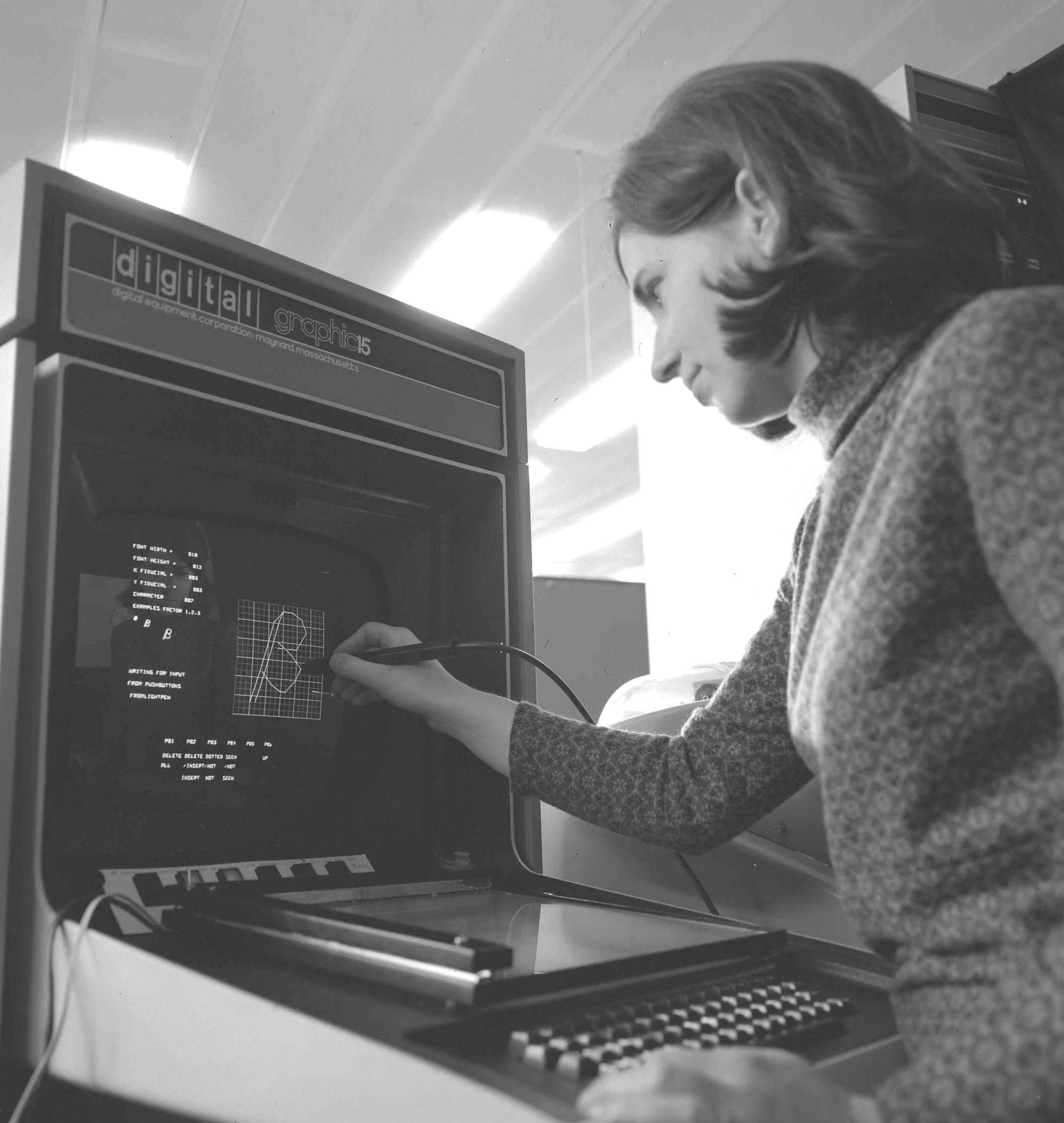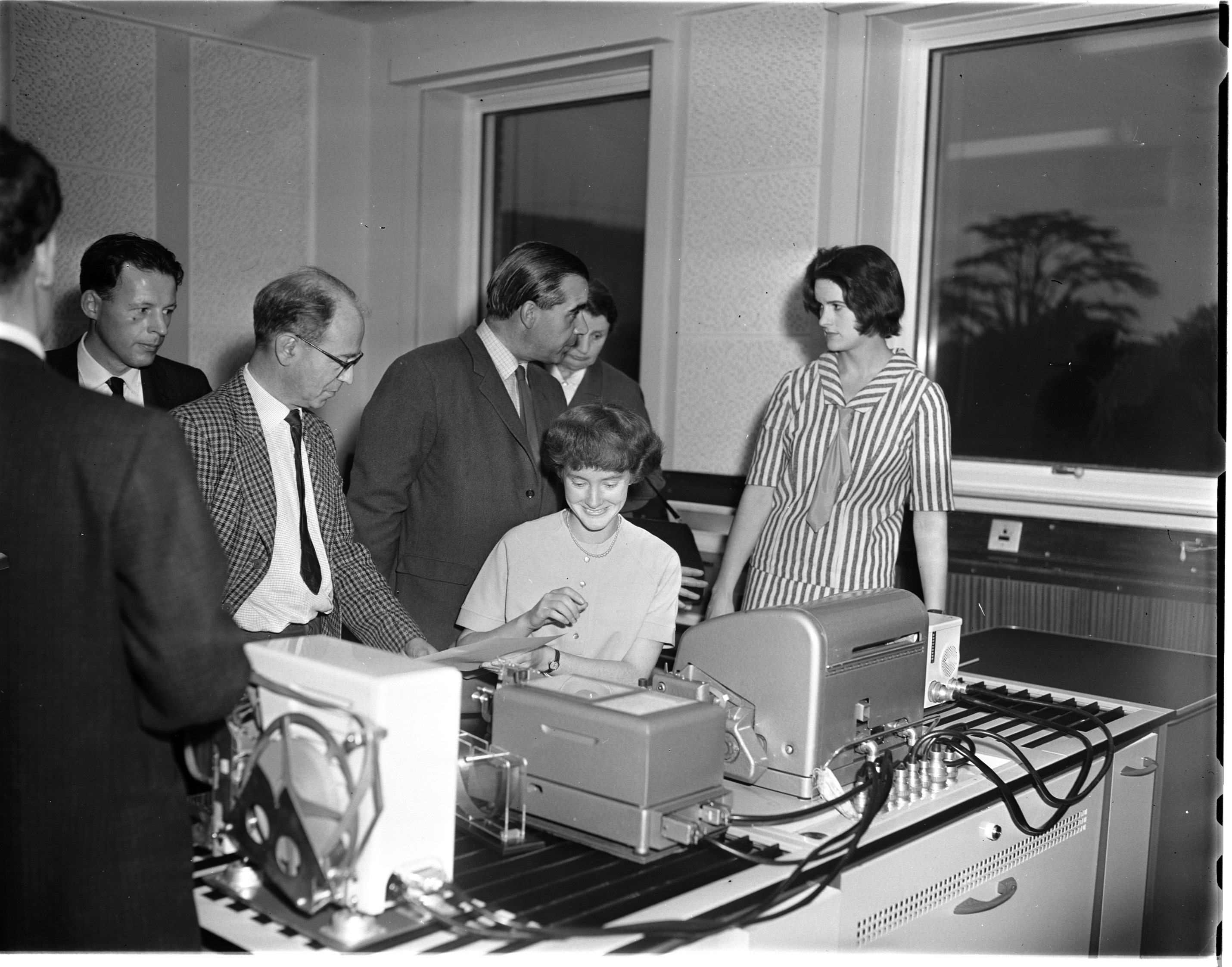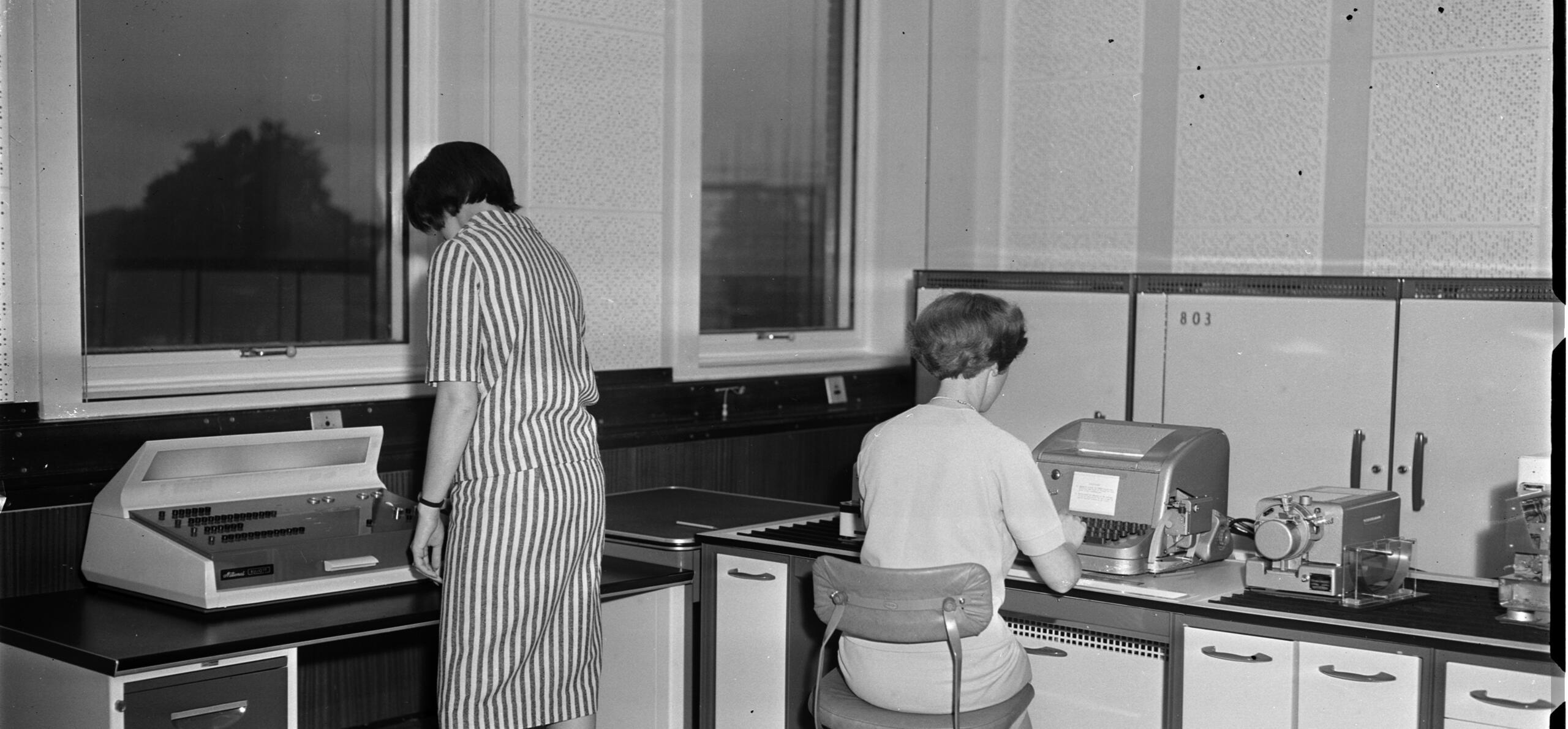A Legacy of Opportunity
A generation before workplace diversity initiatives gained widespread acceptance, ’do the right thing’ at Digital Equipment Corporation created a climate that advanced women. Through official company programmes and actions of individual managers, women employees landed solid jobs and career opportunities.
Propelled by DEC, many went on to work for some of DEC’s technology successors – such as Microsoft and Amazon’s cloud business, which has become the digital foundation for online operations of governments and brand-name commercial customers across the world.

Susan Hockey, later a professor at University College London, developing some of the first screen-based fonts using DEC equipment. (Image: UKRI Science and Technology Facilities Council)
Breaking Barriers: Trudy’s Trailblazing Journey
One such person was Trudy Norris-Grey. Head hunted from Racal Vodafone in 1986, Trudy joined as a financial analyst and rose through sales to become DEC UK’s first woman board member. As a director, she ran DEC’s profitable components and peripherals business.
Trudy subsequently became the UK’s first woman to manage a major technology company – Sun Microsystems – and took on senior vice president and manager posts at BT and Microsoft.
Born in South Wales, Trudy has become recognised as an industry leader and now calls Seattle, Washington, home.
She attributes her progression to the exceptional training provided by DEC and encouragement of her managers who saw her potential.
It was DEC that really formed me.
- Trudy Norris-Grey
From Temp to Tech Leader: Simone’s Story
Simone Hume started with DEC as a temp in her early 20s before joining as a full-time employee. Simone joined DEC soon after arriving from her native Northern Ireland and was a single mother raising her first child.
In a career spanning more than 30 years, she has held senior sales leadership roles at IBM and Amazon Web Services and today is an executive mentor and coach.
Simone credits DEC’s managers for encouraging her to take on responsibilities and championing her growth. She was promoted to a new unit whose job was to sell existing customers additional DEC products and services, running multi-million pound deals with clients that included Ikea and Virgin Media forerunner Telewest.
I became a manager aged 24 and learned so much thanks to DEC. A young mum, in a tech role - this was an amazing opportunity. The sales teaching/coaching was the best I’ve ever had in my career. I have had many managerial roles since.
- Simone Hume
Angela Shore: Leading the Charge in a Male-Dominated Industry
DEC didn’t differentiate between business and technology roles and during an era when women were disappearing from frontline technology jobs, DEC took a lead. Graduate women engineers were given high-profile roles and developed technologies now considered commonplace - including email.
For computer science graduate Angela Shore this meant working as a consulting engineer with some of the country’s biggest utilities and defence firms using DEC’s ALL-IN-1 software to help transform their business.
It was not uncommon for Angela, then in her mid 20s, to be the only woman in meetings at clients where women held noticeably inferior roles and had lower social standing to men.
Angela was one of DEC UK’s first four experts on ALL-IN-1, trusted enough to deliver training on any new features for hundreds of staff and customers at DEC’s Shire Hall office in Reading.
As long as DEC knew what you were doing and they trusted you, you could go out and do anything … It didn’t matter at DEC if you were a man or a woman – age didn’t matter either. It was just such a nice environment and so relaxed.
- Angela Shore

Eliot computer at Reading University
Not Perfect, But Progressive: DEC’s Approach to People
DEC wasn’t perfect. Some managers broke official pay grades to treat secretaries more like the office managers they were. Fully-paid maternity cover was extended to just two weeks but was still considered better than most while management also took a lead on providing affordable crèches.
Summing up, Trudy notes:
Digital immersed themselves in a lot of new management theories and executed on them… the UK leadership in Reading definitely walked the walk.
- Trudy Norris-Grey
Return to the Reading Digital Revolution homepage or explore the next section: Long Live DEC's Legacy





